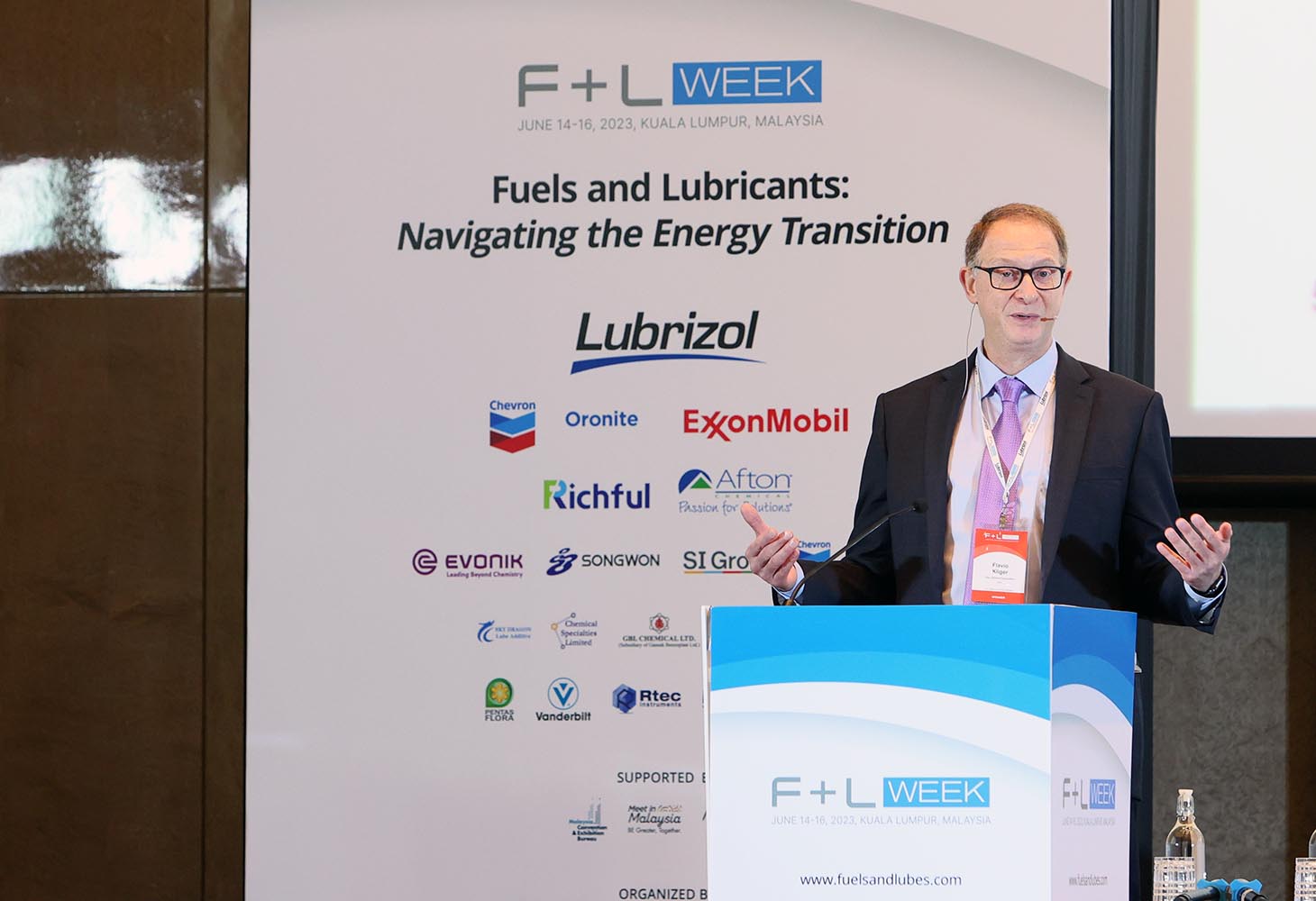
Booming middle class creates challenges in energy transition
By 2030, 60% of the global population will reach the middle class. A booming middle class will supercharge global energy demand. There will be a greater requirement for housing, heating/cooling, consumer goods and transportation—all of which require energy sources.
Growth of the middle class is a huge factor that needs to be considered in the current energy transition for progress is set to occur faster in locations where the energy limitations are largest, says Flavio Kliger, senior vice president of The Lubrizol Corporation, a Berkshire Hathaway Company, and president of Lubrizol Additives.
During a presentation at F+L Week 2023, at the Four Seasons Hotel in Kuala Lumpur, Malaysia, on June 14, 2023, Kliger reviewed the interconnected roles of energy security, environmental sustainability and economic development as part of the energy transition—including the implications of each of these factors for the fuels and lubricants market in Asia.
Talk of the energy transition in our industry tends to over-emphasise electrification, says Kliger. Energy security and access, environmental sustainability and economic development are equally important. These three priorities are interconnected and need to be balanced, one can’t be done at the expense of the other, he says.
Governments, especially in developed countries, are under huge pressure to secure energy access. Kliger highlighted the increasing role of regulations and incentives in securing energy access. He also stressed the importance of better representation of the industry’s value chain in front of governments. We need a unified vision to advocate instead of a reactionary approach, he says.
Embracing renewable energy is not something new. The lubricant industry already plays a key role in enabling the transition by creating solutions for renewable applications, such as gear oil technology for wind farms, dedicated lubrication technology for natural gas applications, and much more.
Kliger emphasised the need for continued partnerships throughout the value chain—working together to advocate for a sensible energy transition, one that sets a path towards greater security of energy supply and enviro-friendly sources, but avoids high and volatile costs. The Lubrizol executive noted the importance of seeking stable policy frameworks that minimise uncertainty and promote long-term business planning in developing new technologies. With these things in place, it gives us the confidence to invest in the right solutions, says Kliger.











